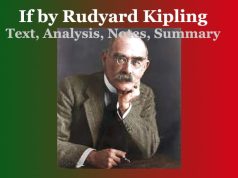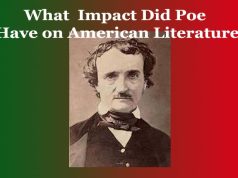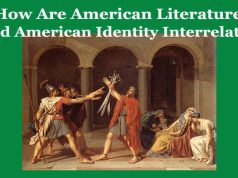John Donne’s Poetry | Chief Characteristics
John Donne’s Poetry Chief Characteristics
Chief Characteristics of John Donne’s Poetry
Introduction:
John Donne, an eminent figure in English literature, was a prominent poet known for his distinct style and profound exploration of metaphysical themes. His poetic works delve into complex philosophical ideas, employing unique metaphysical conceits and a juxtaposition of contrasting elements. Let us delve into the chief characteristics of John Donne’s Poetry as follows.
Metaphysical Themes and Conceits:
John Donne’s poetry is defined by its exploration of deep metaphysical themes. His use of metaphysical conceits, which are extended and elaborate metaphors, allows him to compare seemingly unrelated ideas. In “A Valediction: Forbidding Mourning,” Donne uses the metaphor of a compass to symbolize the enduring connection between souls: “Our two souls therefore, which are one, / Though I must go, endure not yet / A breach, but an expansion, / Like gold to airy thinness beat.”
Juxtaposition of Opposing Elements:
Donne’s poetic brilliance lies in his skillful juxtaposition of opposing elements. He often intertwines the spiritual with the physical, the divine with the earthly, creating a profound tension within his works. In “Batter my heart, three-personed God,” he juxtaposes violent imagery with the desire for spiritual renewal: “Batter my heart, three-person’d God, for you / As yet but knock, breathe, shine, and seek to mend.”
Innovative Use of Language and Wit:
The innovative use of language and wit is a hallmark of Donne’s poetry. His unconventional syntax and colloquial language set his work apart. He employs clever wordplay and unconventional phrasing to create thought-provoking and often humorous verses. In “The Flea,” he skillfully employs witty arguments to persuade his beloved: “It sucked me first, and now sucks thee, / And in this flea our two bloods mingled be.”
Exploration of Love and Eroticism:
Love, in its various dimensions, is a recurring theme in Donne’s poetry. He delves into the intricacies of romantic and physical love, often intertwining it with spiritual and intellectual pursuits. In “The Good-Morrow,” Donne explores a profound and mature love: “My face in thine eye, thine in mine appears, / And true plain hearts do in the faces rest.”
Religious and Spiritual Exploration:
Donne’s works often reflect his religious and spiritual contemplations. His poems manifest his personal spiritual journey and his struggles with matters of faith. In “Hymn to God, My God, in My Sickness,” he contemplates his relationship with the divine: “Thou’rt slave to Fate, chance, kings, and desperate men, / And dost with poison, war, and sickness dwell.”
Conclusion:
John Donne’s poetry stands as a testament to his intellectual depth, linguistic ingenuity, and profound exploration of the intricate facets of human existence. His ability to intricately weave metaphysical themes, juxtapose contrasting elements, and explore love, spirituality, and faith in a linguistically innovative manner marks him as a leading figure in English poetic history. 0 0 0.
John Donne’s Poetry Chief Characteristics
You May Like:
- Aga Shahid Ali-Postcard From Kashmir-An Analysis
- Al-Hutayah-His Life and Poetic Career
- Birth & Development of Arabic Poetry
- Chief Characteristics of Modern English
- Birth & Development of Arabic Prose
- Chief Characteristics of Old English
- Medieval Romance-Chief Characteristics
- The Mahabharata by Vyasa-Review
- Kamala Das-A Losing Battle-An Analytical Study
- John Dryden’s Mac Flecknoe as a Mock Heroic Poem
- Henry Derozio’s To the Pupils of Hindu College-Analysis
- Toru Dutt’s Poetry-Chief Features
- Robert Souithey’s The Scholar-Analysis
- H Deroio’s Song of Hindustanee Minstrel-Analysis
- Derozio’s Chorus of Brahmins-Analysis







